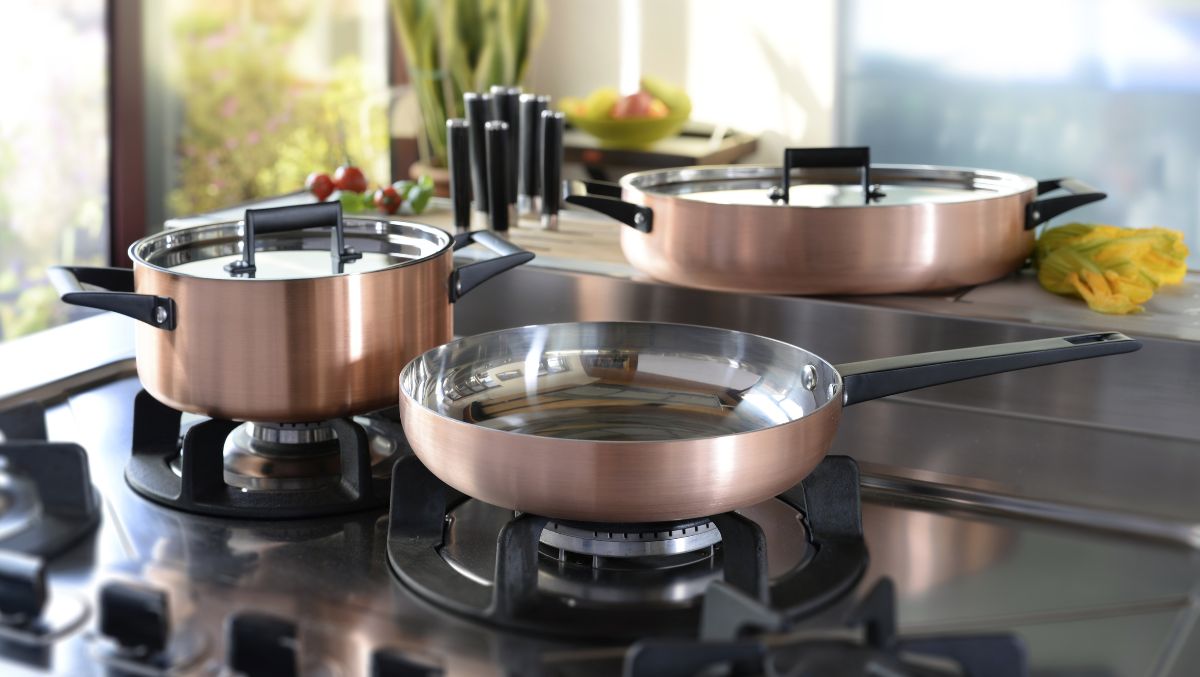6 Household Items Worth the Splurge
by Rose Scott

In the quest for savings, choosing the cheapest options is tempting. However, this can be a penny-wise but pound-foolish approach when it comes to items you use daily. Here’s a look at six household items worth the splurge.
1. Mattresses: A Restless Economy
Unless you’re financially limited to a cheap mattress, it’s worth investing in a quality one. After all, most of us spend roughly one-third of every 24 hours in our beds.
A cheap mattress might seem like a bargain, but it often leads to poor sleep quality and discomfort. A lower-quality mattress will also likely wear out faster, requiring more frequent replacement.
A quality mattress helps support quality sleep, which has long-term health benefits and reduces stress, possibly saving you on healthcare costs.
An investment in a good mattress doesn’t mean you have to pay full price. According to Consumer Reports, you can find the best sales on mattresses in February, May, October and November. With proper mattress care, your investment should provide you with seven to ten years of comfortable slumber.
2. Furniture: The High Cost of Low Quality
Like cheap mattresses, cheap furniture can mean sacrificing durability, longevity and comfort. Lower-quality materials and construction techniques can lead to issues like wobbling, breaking, or deteriorating much faster than higher-quality pieces. The need for frequent replacements due to wear and tear adds up financially.
Inexpensive furniture also may not be designed with comfort or ergonomics in mind, potentially leading to discomfort or even physical strain.
Sometimes cheaper furniture can pose safety risks, especially if it’s not well-constructed. For example, bookshelves or TV stands that are not stable can tip over, causing injuries.
Higher-quality pieces tend to retain more value over time, so you’re more likely to recoup some of your investment if you sell your furniture.
You can typically find good sales on furniture during holidays such as Labor Day and Memorial Day. Also, watch sites like Craigslist and Facebook Marketplace or visit used furniture stores to find used quality pieces.
Sign Up for Savings
Subscribe to get money-saving content by email that can help you stretch your dollars further.
Twice each week, you'll receive articles and tips that can help you free up and keep more of your hard-earned money, even on the tightest of budgets.
We respect your privacy. Unsubscribe at any time.
3. Window Treatments: The Hidden View
Window treatments should do more than complement your home decor and provide privacy. Investing in quality treatments that also block light and insulate your home from heat and cold can save money on energy bills and provide better light control, making them a wise long-term investment in comfort and energy efficiency.
Cheap window treatments often lack durability and effectiveness in controlling light and insulation.
4. Cookware: False Economy in the Kitchen
Cheap cookware often means poor heat distribution, leading to uneven cooking and potentially burned or undercooked food. Furthermore, low-quality materials can degrade quickly, necessitating frequent replacements.
More importantly, manufacturers of low-cost cookware may use materials that can leach harmful chemicals into food, especially when scratched or overheated. For instance, some non-stick coatings can release toxic fumes at high temperatures, and certain metals can react with acidic foods.
Durable, high-quality cookware is often safer, can make cooking and clean-up easier, and will stand the test of time, proving more cost-effective in the long run.
5. Kitchen Knives: A Dull Decision
Another wise kitchen investment is splurging on quality knives.
Cheap kitchen knives can make food preparation tedious and dangerous. They require frequent sharpening and replacement, leading to higher costs.
Quality knives stay sharp longer, offer better precision, and enhance safety in the kitchen. Some brands of knives, such as Cutco, come with a higher price tag but a lifetime warranty and, sometimes, free sharpening.
6. Smoke Alarms: The Price of Safety
Safety is not an area in which you want to cut financial corners.
Cheap smoke detectors might lack sensitivity or have shorter lifespans, leading to increased fire safety risks and frequent replacement. Less expensive options might also not meet U.S. safety standards or have counterfeit certifications. Plus, some cheap models might require more frequent battery replacement, contributing to higher overall costs.
More advanced (and expensive) smoke detectors come with additional features such as interconnectivity (where one alarm can trigger all alarms in the home) and smart technology integration (allowing you to receive alerts on your phone). Cheaper models are less likely to include these enhancements.
High-quality smoke detectors also undergo rigorous testing and are certified by recognized safety organizations, such as Underwriters Laboratories (UL). Investing in reliable smoke alarms ensures peace of mind and can save lives, making it a non-negotiable expense.
Before purchasing new smoke alarms, do your homework to determine the certification, reliability, features and longevity of various brands to help ensure you’re getting your money’s worth.
Some Household Items Are Worth the Splurge
The lesson is clear: when it comes to these essential home items, it’s often worth paying a bit more upfront to save a lot more over time. Investing in high-quality options can save money, increase safety and enhance quality of life.
Reviewed March 2024
Popular Articles
- 7 Habits of Highly Frugal People
- 5 Simple Budget Cuts That Can Save $200 a Month
- How to Track Down Unclaimed Funds Owed You
- 32 Ways to Save Money on Your Utility Bills
- Do You Need Credit Life Insurance When Buying a New Car?
- How to Maximize Profits When Selling Online
- Staying Motivated to Continue Digging Yourself Out of Debt
On After50Finances.com
- 9 Things You Need to Do Before You Retire
- You Didn’t Save Enough for Retirement and You’re 55+
- When Empty Nesters Reorganize and Declutter Their Home
- Reinventing Your Career in Your 50s or 60s
- What Mature Homeowners Should Know about Reverse Mortgages
- 2 Reasons to Collect Social Security Benefits As Soon As Possible

